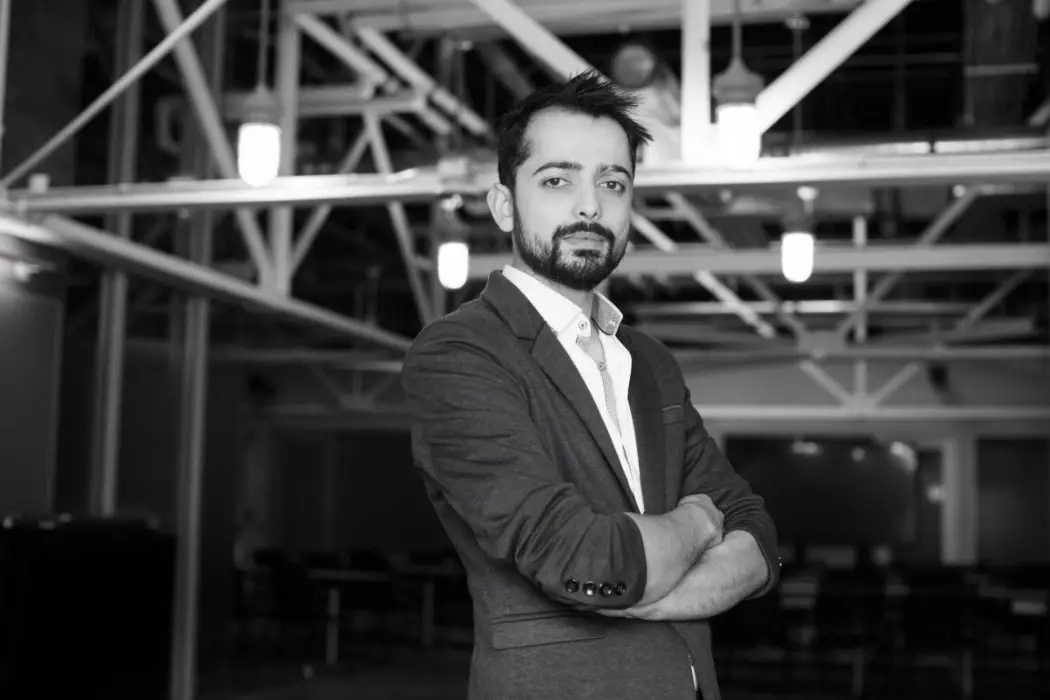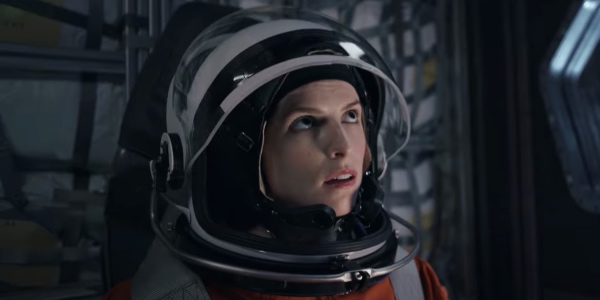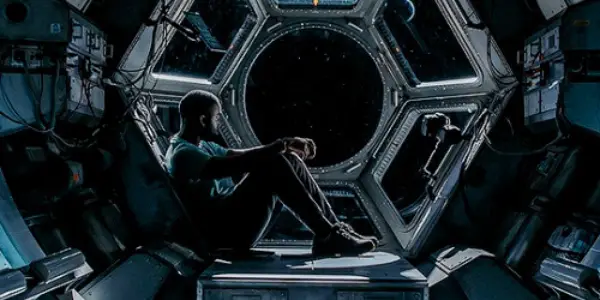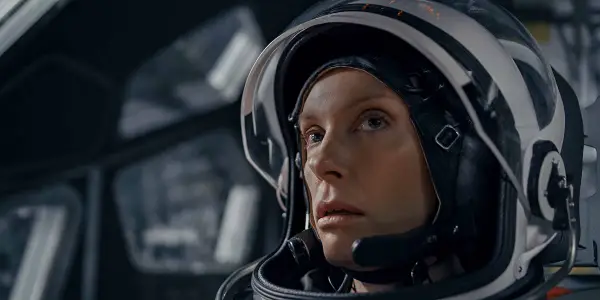Interview With Joe Penna, Director And Co-Writer Of STOWAWAY

Stephanie Archer is 39 year old film fanatic living in…
Netflix’s latest, Stowaway, examines the choices of survival, not only the fight for oneself but for those around you. On a two-year mission to Mars, three astronauts are far from home in the vast expanse of space. As they settle into their daily routine’s they are shocked to find a technician accidentally stowed away on board, miraculously surviving take-off – quickly becoming a member of the crew.
Yet, with limited resources and unforeseen malfunctions, survival becomes a draw-of-the-straw situation and the crew making it to Mars becomes direr with each passing moment. I had the opportunity to speak with Joe Penna, the film’s director, about not only creating the vast array of emotions his characters both experience as well as represent, but also the challenges the other world design created, the sense of isolation Stowaway presents, and the everlasting prospect of hope.
Stephanie Archer for Film Inquiry: Congratulations on the film and thank you for taking the time to speak with me today. There’s a lot to unravel from Stowaway between the film’s intensity and its examination of resilience and hope. I was wondering, where did the idea for the film come from?
Joe Penna: You know, there was a day where I was trying to write a movie – I was trying to work an outline. And my co-writer [Ryan Morrison] said Dude, what if we were on a lifeboat?. I said, just a second man. I’m trying to write a movie here. He continued saying but listen, like, it’s you, your wife, your son, and me – if that were the case and one of us has to go, it would be me. Like I would just go. And I said, all right, well, that’s interesting. Let’s explore that. And we started thinking about, okay, well, what if we set it in the Arctic, what would that be like? Or what if we set this on a terraformed Mars, what would that be like? What about a bunker? What about this?

And eventually, when the idea of the international space station or a spaceship headed to Mars or something like that came up, that’s really interesting for me. Both visually having these really intense, horrible discussions in front of the most beautiful imagery that we’ve seen from NASA in the Hubble space telescope and things like that versus the cold equations – which, by the way, I didn’t know, it was a famous short story until after we wrote this. But that really influenced our rewrites for sure.
You had discussed what it looked like in space briefly there. With the inclusion of special effects and the aspect of creating this otherworldly aesthetic to the film, did you find any challenges in creating that?
Joe Penna: Yeah, you know, a lot of it was dictated by reality. We wanted to make a film that was incredibly scientifically accurate as possible. So when you’re speaking to aerospace engineers and people who had actually been inside of these capsules or commanders of the spatial, they tell you that a button is going to be red and you make it red. If they tell you that a certain wire is going to be exposed, then there’s no panel making it look pretty. There you go. That’s what you’re doing. I suppose Elon Musk is very much making all those other movies that came before us a lot more feasible with his design aesthetic. But what we wanted was this like cobbled together, every gram counts, every single ounce needs to be, needs to have a discussion about it kind of film, because that adds to the veracity of the conundrum that they find themselves in.
With the conundrum that they find themselves in, each character seems to encompass an emotion associated with chaos. You have hope, despair, acceptance, and determination. What was the thought process in crafting each one of these characters?
Joe Penna: Yeah. You know, A lot of it was just discussions that my writer and I were taking. I wasn’t quite as cold as, well, sorry, there’s the exit over. The airlock, just make sure you close it before you jump out. But if there is an entire company full of people who have copies of the spaceship on earth, and they’re telling you that there’s nothing you can do, what are you, what’s the question – like if you can save four people, why not?
And my co-writer was – if there is even an infinitesimally small chance that we could figure something out or that they could be wrong about it, or that we could take a risk that they’re not really to take down there, then why not do that risk and try to save everybody and sure, put everyone in peril. I think this kind of scenario, it really depends on whether you believe that they were all placed into that situation, or if just one of them was placed in that situation. Just the person who is accidentally there. And everyone just has a line that they fall on from the very beginning. And we wanted to give both of those arguments credence.

Briefly, I wanted to talk about the score from Volker Bertelmann. It varies given the moment. It encompasses the otherworldly space aspect of Stowaway – almost mystical – but at times it’s a devastating reality. The piano is awkward and unsettling as though you hit the wrong key or the wrong note. I was wondering – what was the initial process behind crafting the score?
Joe Penna: Yeah. You know, Volker is amazing. He’s an amazing pianist. He does a lot of prepared piano kind of things. Once we told him about the approach of the aesthetic approach of the film being realistic and showed him a bunch of images, he said, okay, I think I understand. And then he showed up on set, because he just happened to live like 10 or 20 minutes away from where we were shooting – random city in Germany. And so he was like, okay, I think I understand. So one day when we were shooting, I showed up to the studio and he had giant pieces of wood that had microphones that were drilled into it. He had wires that were hung up all around his house because tethers and wires are very important to the film.
And he was recording like really huge, like basically the longest lowest piano note that can be recorded, he put in that, all of these experimental kind of things, because he said, “well, space is so experimental. They just keep trying things until they figure something out. Okay, let’s swing this into orbit and see if it works.” And a lot of the times it fricking doesn’t, so he wanted to take a similar approach, but still be grounded in an orchestral score. He didn’t want it to just be weird. He said, “I’ll do my piano part. We’ll have the orchestra” – which by the way we shot, we recorded the very last day before the pandemic shut down. We got very lucky.
Wow. That is lucky.

Joe Penna: But yeah, so his approach was very much in that way. And I try not to be too prescriptive about my notes or my views because I think that his job is to think about music and likely he will come up with something better than what I’m picturing in my mind.
You had mentioned Hyperion, which is an organization down on earth. Many times the characters are speaking to Hyperion and you’ll hear only one side of the conversation. It seems to stand out more because of COVID but is isolating for the characters, as well as the audience. What was the idea behind maintaining only the one-side conversation?
Joe Penna: I had read a really old version of the screenplay for Captain Phillips, the Paul Greengrass movie. Then I watched the movie and I realized that he had kind of cut out a lot of the “other side” – the wife and the people trying to figure it out. I watched the movie and I realized that it was so horrible to watch that movie, and I watched Hitchc*ck‘s Lifeboat and it forces you to be there with them, it forces you to really feel like you’re in that situation. So even cutting outside of the spaceship, when we do that, we cut to almost like CCTV footage.
The effects people are like, we can make this amazing shot that’s like craning all around and revolving around this patient. I said, no, I want something that is stuck. Here is a picture from NASA of where the cameras are. One of these is what you do. In taking that approach, I think forces you to, for your skin to start crawling. And when literally they’re having a conversation in a flying closet, that makes it a lot more of a constraining experience. Not as constraining as something like Buried, that one movie that all took place inside a coffin, but still, you know, at certain moments and setting those moments in a smaller part of the ship was important.
Film Inquiry would like to thank Joe Penna for taking the time to speak with us!
Stowaway will be released on Netflix on April 22, 2021!
Watch Stowaway
Does content like this matter to you?
Become a Member and support film journalism. Unlock access to all of Film Inquiry`s great articles. Join a community of like-minded readers who are passionate about cinema - get access to our private members Network, give back to independent filmmakers, and more.













